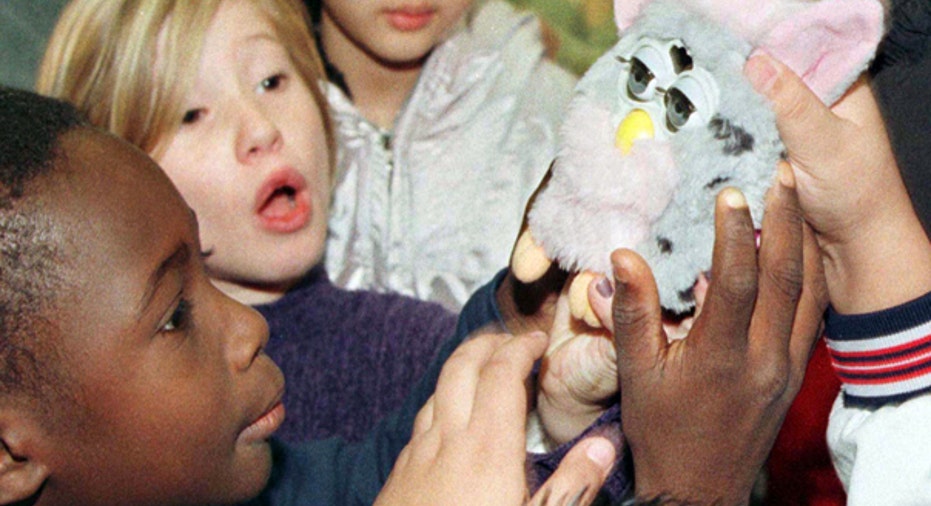Are You Teaching the Kids That ‘Rich Is Sexy?’

Parents—take caution: the way you spend, save and talk about money might greatly impact how your children develop, financially speaking. According to a recent study, financially traumatic moments that occur in childhood are the basis for many disordered money behaviors in adulthood.
"Money Beliefs and Financial Behaviors: Development of the Klontz Money Script Inventory," published in the current issue of The Journal of Financial Therapy, was conducted by Dr. Brad Klontz, an associate research professor at Kansas State University, along with Sonya L. Britt, also a Kansas State professor. The survey was conducted among 422 people, asking them about 72-money related beliefs. Klontz and Britt then analyzed the responses and divided the fiscal attitudes into four categories which include: money avoidance, money worship, money status and money vigilance.
According to the study, those who are money avoiders like to keep a distance between themselves and money. Klontz said they may believe they do not deserve wealth. Those in the money worship category believe that money is the key to happiness and will solve life's problems. Money status can cause people to be anxious, as they equate the amount of money they make or have with their self-worth, the survey said. And, money vigilant people tend to not like to share information about their pay grade or net-worth, but are also stealth spenders. Money vigilance was the only script that did not involve destructive behavior for the participant, Klontz said.
Klontz said that disordered money behaviors in adulthood can be shaped by traumatic events that happen early in life, such as poverty. Citing the Great Depression as an example, he said that money behaviors take on a "pendulum effect," where children do exactly as their parents did, or just the opposite.
"The Great Depression developed an entire generation of hoarders," he said. "Their children, baby boomers, lived in excess. Our children will either do the exact same thing or the exact opposite."
He said the recession that the country is still digging its way out of will have a similar effect on today's youth, although it will not be as extreme.
"If I am a young adult that sees my parents now can't retire and have lost their house, I may be very anxious around money and distrustful of financial institutions," Klontz said.
The most destructive attitude toward money in the scripts is money worship, Klontz said, noting that Americans have been afflicted by this mentality in recent years. Such an attitude can be undone with therapy, he said, and taking a hard look at what your childhood memories are of money, spending and saving.
"Look back into your early experiences around money and challenge that," he said. "Being aware of the messages we receive from culture, and challenging them. Shows like ‘My Super Sweet 16’—that is not how wealthy people live. There is a real sense that you're missing out on the party, and it's all based on a fundamental lie."
Credit.com Contributor Farnoosh Torabi, author of Psych Yourself Rich, agreed money worshippers have the most self-destructive relationship with finances. This attitude is very prevalent in American culture, Torabi said.
"We have an ongoing love affair with material things. We equate them with power and status, all wrongfully," she said. "With our culture glued to the media, "Real Housewives" shows, the Kardashians—we are obsessed with wealthy and what we perceive as wealthy."
Financially traumatic moments are "huge" in developing one's attitudes surrounding money, Torabi said. Parents are also major influencers on their child's own financial habits and ideas, so teaching about saving and spending from an early age is key.
Torabi said the view of wealth in the U.S. has become increasingly skewed, and Americans have lost sight of what the purpose of money should be—to create security and financial freedom, instead of having material goods.
"This is a hard bias to break down," she said. "People will readily say they don't believe it and that they are not money worshippers, but at the core, deep down, a lot of us wouldn't mind having a ton of money. At the end of the day, rich is sexy."
In order to reverse unhealthy attitudes before they are developed, Klontz said parents need to talk with their children about finances, early and often. Showing them how you physically save for an item and then purchase it, he said, is one great way to do this.
"There has been a real disconnect between money and buying things, and [kids] often don't see you saving for things," Klontz said. "Also, give them allowances, but not with free reign. Let them spend one dollar, save a dollar and give one dollar to charity. Do a matching quarter interest to show them how to grow and save."



















